| ISLAND Newsletter - April 2021 |
View in browser | Print |
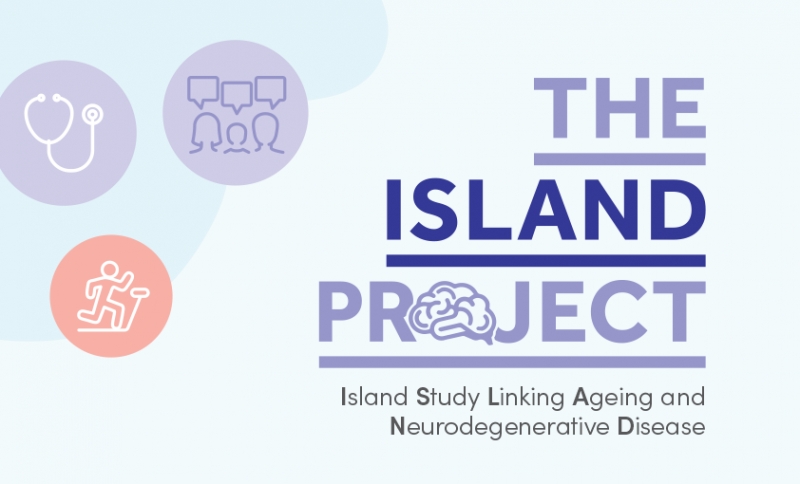 |
| |
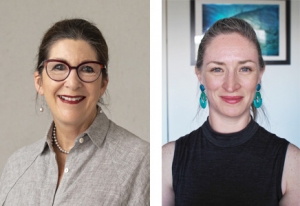
Welcome to this edition of the ISLAND Project Newsletter. I am Associate Professor Lyn Goldberg (left photo), and my background is in Communication Sciences and Disorders. I coordinate units in the Wicking Centre’s Bachelor of Dementia Care and conduct community-based research focused on dementia risk reduction. I have the great privilege of working closely with the Circular Head Aboriginal community in far North West Tasmania. My colleague Clare Combey (right photo) is a Senior Audiologist with Hearing Australia and a graduate of the University of Tasmania, Associate Degree in Dementia Care. In this edition, we are writing to let you know about the complexity of hearing and the importance of monitoring and attending to any changes in hearing as we grow older.
|
| Risk Factor - Changes in Hearing |
|
Our ability to hear is complex. It is much more than our ability to detect simple sounds in a quiet and structured environment. We need to be able to perceive and understand sounds that change quickly and are layered with other sounds – consider trying to follow and participate in conversations in a crowded restaurant. Doing this successfully involves being able to hear sounds, interpret these sounds as voice and speech separate from background noise, match the voice and speech features to what we have in our memory so that the sounds we hear are meaningful, organise our response, and respond appropriately. These complex hearing processes are termed 'auditory cognition'. They rely on an intact 'peripheral hearing system' (the outer, middle, and inner components of the ear, Figure 1) connecting seamlessly with an intact 'central hearing system' (the auditory cortical and processing networks in the brain, Figure 2) – and with speech, language, and other high-level cognitive systems throughout the brain (Figure 3). Put simply, the ear needs to send the information to the brain for you to actually 'hear' and understand what you heard. Without both the ear and brain working together to receive, transmit and then process the sounds around you, you will have difficulty with your hearing.
|
| |
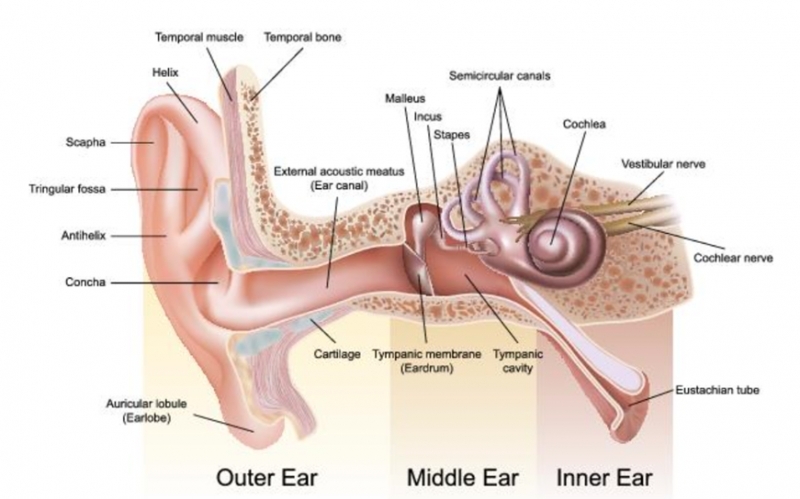 |
|
Figure 1. Anatomy of the peripheral hearing system.
|
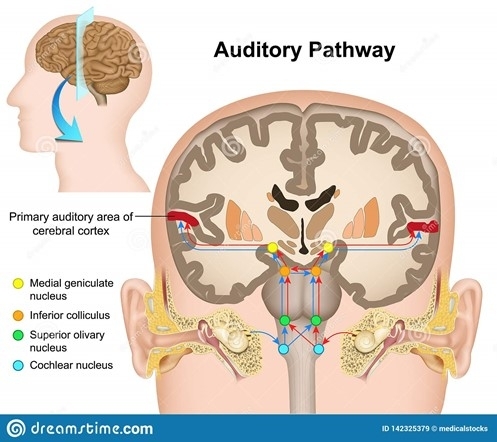 |
|
Figure 2. The central hearing system - transfer of sounds from the inner ear to auditory processing centres at lower and higher levels in the brain.
|
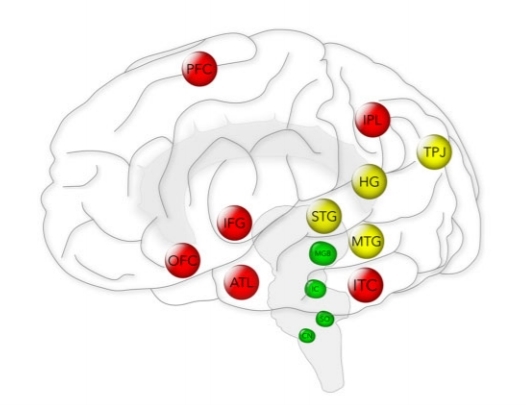 |
|
Figure 3. The healthy auditory brain – showing areas involved in hearing. Green indicates processing centres in the brainstem (a lower part of the brain - see the coloured dots in Figure 2); yellow indicates auditory cognition centres at higher levels of the brain; red indicates general high level cognitive processes in the brain. From Johnson et al. (2021). doi: 10.1093/brain/awaa429.
|
|
Thinking through these three figures, you can appreciate how hearing in the regular noise of life is a complex cognitive function. Recent work by Gill Livingston and her colleagues has identified central hearing loss acquired in middle age as a risk factor for cognitive decline and dementia and we know that hearing speech in noise is often a major issue for older people. As we age, our hearing systems also are vulnerable to the cumulative effects of life experiences, particularly working in a noisy environment. Any acquired hearing loss can affect a person’s social engagement and quality of life. Limited social engagement, in turn, may affect a person’s general cognitive ability and increase vulnerability to social isolation and depression. Such negative outcomes can be prevented by making sure that we talk with our General Practitioners regularly about our hearing and ask for a referral to an audiologist for testing when we are concerned about any changes. Hearing testing is painless - and ensuring we hear well is an essential factor in preventing auditory cognitive dysfunction, maintaining general brain health, and thus decreasing the risk of dementia. Recording hearing changes over time is also a valuable part of long-term preventative health care. Being able to hear well is such an important issue – but its importance is often overlooked and misunderstood. If you have any questions about your hearing please contact your health professional. For further information on hearing testing, contact your local team at Hearing Australia on 134 432.
|
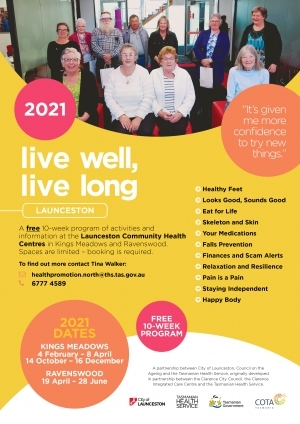
Live well, live long - Launceston
A fantastic program has landed in Launceston! Check out this free, 10 week program to assist you live well and live long. Ravenswood sessions start soon, with Kings Meadow dates later this year. Find out how to improve your health, independence and daily life, but be quick - places are limited and bookings are essential.
Contact Tina at healthpromotion.north@ths.tas.gov.au for more information or to make a booking.
|
|
|

Have you completed your baseline surveys?
Thank you to our newest ISLAND members who have joined our project this year. One of the most important ways you can contribute to dementia prevention research is to complete your baseline surveys. These are the first surveys you are presented with when you sign up to the ISLAND Project for the first time. If you have completed your baseline surveys, thank you. This helps us look at changes over time in our participants' responses to our research questions. If you have not got around to completing these surveys, please log into your ISLAND home portal You can complete a survey, take a break and continue onto the next survey.
|
| ISLAND Project Partners |
|
|
 |
|
The University of Tasmania received funding from the Australian Government. Views and conclusions expressed in this publication are those of its authors, and may not be the same as those held by the Department of Health.
|
|
Stay Connected:
|


|
islandproject.utas.edu.au
|
| |